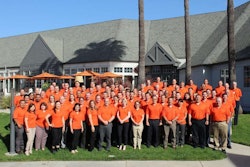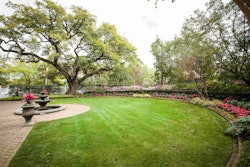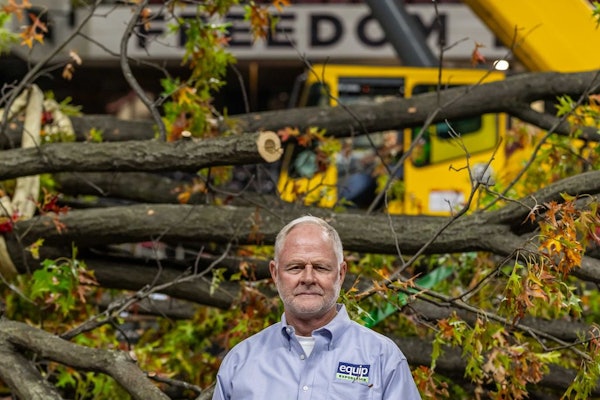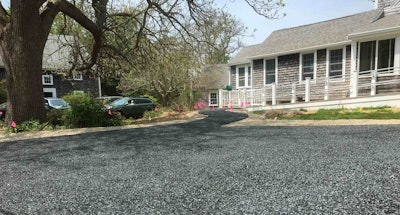 “The Living Landscape Laboratory is intended to inspire local property owners to adopt sustainable landscape practices and use green building materials,” said Theresa Sprague, owner of BlueFlax Design.
“The Living Landscape Laboratory is intended to inspire local property owners to adopt sustainable landscape practices and use green building materials,” said Theresa Sprague, owner of BlueFlax Design.Photo: Porous Pave
When the Association to Preserve Cape Cod (APCC) began creating its Living Landscape Laboratory to showcase green building practices, it also chose to use Porous Pave XL as its permeable paving material.
APCC is a nonprofit environmental organization that is working to protect Cape Cod’s natural resources and unique habitats. The Living Landscape Laboratory features a rain garden and native plants replacing sections of grass, along with other sustainable landscape solutions and is located in Dennis, Massachusetts.
“We are transforming a 130-year-old house and barn into our new headquarters and educational facility and creating a Living Landscape Laboratory,” said Kristin Andres, director of education and outreach for APCC. “With our sustainable landscaping, property owners on Cape Cod can learn about practical methods and effective materials they can use on their own landscapes to protect our unique environment.”
BlueFlax Design LLC based in Harwich, Massachusetts, handled the landscape design and cited Porous Pave’s ability to prevent runoff and slip resistance as reasons why it was selected.
“Cape Cod has 1,000 freshwater ponds and more than 500 miles of shoreline,” said Theresa Sprague, owner of BlueFlax Design. “Stormwater management, including permeable paving to retain stormwater on site, is critical to minimize polluting runoff.”
Porous Pave XL is made from 50 percent recycled rubber chips and 50 percent kiln-dried aggregate with a moisture-cured, liquid binder. Water is able to pass through it at a rate of 5,800 to 6,300 gallons per hour per square foot.
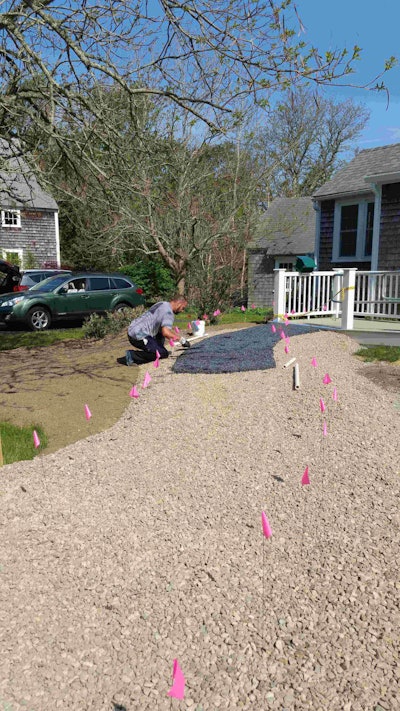 Land Escapes Design Studio install the Porous Pave.
Land Escapes Design Studio install the Porous Pave.Photo: Porous Pave
Its flexible rubber chips also give it the ability to withstand freeze-thaw cycles without cracking or heaving. It can be shoveled or plowed and the residual snow melt will permeate down through the surface instead of freezing and forming ice.
“We also chose Porous Pave because it is an innovative green material that, while proven, is still new to Cape Cod,” Andres said.
The project’s landscape contractor, Land Escapes Design Studio based in Belmont, Massachusetts, poured two inches of Porous Pave XL on an 8 to 10 inch base of clean angular drain rock for the handicap parking pad and accessible walkway.
“Porous Pave is easy to install, sets up fast and cures quickly,” said Trevor L. Smith, lead designer with Land Escapes Design Studio. “It only took a few hours to mix, install and finish 527 square feet, 400 for the handicap parking pad and 172 for the walkway.”
Smith created a custom mix for the APCC installation by mixing Porous Pave fine-cut (1/8-1/4 inch) black rubber chips and traditional size (1/4-3/8) grey rubber chips with the kiln-dried aggregate to form a color and texture that blends with the existing asphalt driveway.
“The mix also suggest the color and texture of the loose gravel driveways many homes and commercial building on the Cape,” Smith said.
